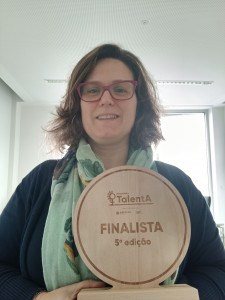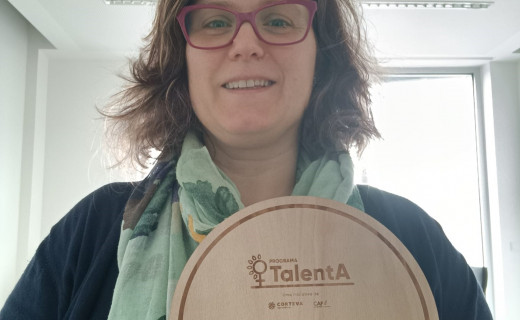 They are businesswomen in the agricultural sector. They won the last edition of TalentA, a program promoted by CAP and Corteva Agriscience. Program continuity is under evaluation.
They are businesswomen in the agricultural sector. They won the last edition of TalentA, a program promoted by CAP and Corteva Agriscience. Program continuity is under evaluation.
What do a coffee producer from the Azores, a sheep breeder from Churra Mondegueira and a chestnut producer have in common? Daniela Lourenço, Telma Lourenço and Filipa Barros won TalentA, a program promoted in the country by the Confederation of Farmers of Portugal (CAP) and Corteva Agriscience, to highlight the role of female entrepreneurs in the agricultural sector. In total, 9 thousand euros in prizes were awarded in this 5th edition. What about the next one? “The continuity of the Program and its conditions have yet to be decided,” says Luís Mira, CAP’s secretary general.
Launched in Spain in 2019, TalentA has now spread to nine countries, including Portugal, where in five editions it has already received more than 250 applications. “It is good that there are mobilizing initiatives, which allow us to give relevance to these drivers of the rural world, serving as an example for everyone and, especially, for young women”, considers Luís Mira.
From agriculture to technology, future-proof professions
Read more
The figures on female participation in the agricultural sector are encouraging enough. “Since 1989, the number of single producers has been reduced by more than half, however, there has been a large increase in the female fringe, since, in 1989, only 15% of these single producers were women and, in 2019, they already represent 33% of the total”, highlights the CAP secretary-general. According to the agricultural census, in 2019, of the 274,248 farmers in the country, 90,332 are women.
TalentA not only gives visibility to the winning projects but also some capital and access to training. The winner receives a prize of 5,000 euros “to continue the project”, and the two finalists “are given the opportunity to access consultancy and training adapted to their specific needs”, explains Luís Mira.
A coffee with coffee from the Azores…
Daniela Lourenço was the winner in this year’s edition. He has the ambition to develop the coffee industry on Terceira Island, in the Azores. “At the moment we have plants — Caturra and Yellow Bourbon —, an experimental field with 60 plants of six new varieties imported from Brazil to understand their sustainability in our mild climate”, describes Daniela Lourenço.
“We continue to prepare land for new facilities every day, our goal is to grow and have the best possible conditions”, he says about the Café das Duas Ribeiras project, which started in 2023 in the parish of São Bartolomeu de Regatos. And it is bearing fruit. “We expect that in this first year of the biggest harvest, the family will be the ones to reap the rewards, but we are aware that in the future it will be essential to seek labor throughout the process,” admits Daniela Lourenço. “Our biggest objective, in addition to the aspects involved in production and processing, was to have a distribution channel for our product, and we have already achieved that,” he says.
They are 14% of startup founders. But they want to be more
Read more
The 5,000 euros allocated are “a great help for the intended investments” in the purchase of equipment, he admits. “I sincerely hope to inspire more women to take this step, to become entrepreneurs, strengthening our rural fabric, where our work is fundamental,” she says.
…and soaps with sheep’s milk Churra Mondegueira
“There are few people in agriculture. Regarding women in agriculture, I think they are not given the value they deserve. Many of them do more demanding work than men, and they are not rewarded financially for it,” says Telma Lourenço. “I feel a great injustice because I know of many cases where women have exactly the same role as men and their salary at the end of the month is lower. I think this is one of the reasons why there are not more women in agriculture,” says the finalist with the Fazenda Vale do Tourão project, where she works with her husband and parents.
On the farm, with 38 hectares in Figueira De Castelo Rodrigo, two native breeds are raised: the Churra Mondegueira sheep breed and the Burra Mirandesa donkey. “Our production method is organic. We try to optimize natural resources as much as possible. We produce sheep’s milk and several other crops: almonds, olives, hazelnuts, vineyards, cereals and dried flowers,” explains Telma Lourenço, the third generation of milk producers at the Quinta.
“We want to make a difference, we produce food that we respect throughout the entire process,” he says. The project also involves transforming milk from native Churra Mondegueira sheep into handmade soaps.
There is a Portuguese woman among the most innovative Europeans
Read more
“This award confirms my commitment and determination to work the land and its resources in a conscious way. It is a validation of my work,” says the company.
